In a series of submitted statements from other actors, other points emerged about the use of multidimensional poverty measures. Dr. Ana Revenga of the World Bank detailed the how the forthcoming Atkinson Commission Report on Global Poverty will advocate complementary uses of monetary and multidimensional measures of poverty. Dr. Savas Alpay of the Islamic Development Bank shared findings from a recent report on multidimensional poverty in IDB member countries in Africa. Dr. Noel Gonzalez Segura of the Mexican Agency for International Cooperation (AMEXCID) invited participants to the upcoming MPPN meeting in Mexico in November 7-9, 2016. Dr. Attila Hancioglu of UNICEF elaborated on UNICEF’s use of multidimensional measures for child poverty. Ayodele Odusola of UNDP explored the history of incorporating multidimensional measures into policymaking and how leaders in this regard have served as examples to others.
The meeting was remarkable for the diversity of participants and the energy, ideas, and concrete examples that they brought to the discussion. It clearly demonstrated the vitality of the movement for multidimensional poverty reduction and the necessity of considering the multiple dimensions of poverty so that no one is left behind.
Highlights from the discussion included:
 H.E. Jeff Radebe, Minister in the Presidency of Planning, Monitoring and Evaluation, South Africa
H.E. Jeff Radebe, Minister in the Presidency of Planning, Monitoring and Evaluation, South Africa
“Let us remind ourselves – that none other than the late former South African icon and former President of South Africa, Nelson Mandela, uttered these words: ‘As long as poverty, injustice and gross inequality persist in this world, none of us can truly rest!’… This moment, now, calls for a greater sense of urgency, collaboration and coordination to connect the dots more presciently and to work even more assiduously… We must do so with restless commitment and the conviction that poverty can be relegated to the dustbin of history.”
“South Africa seeks to ensure that its MPI reflects the voices and values of poor people and their communities. Statistics SA recently undertook an innovative community survey asking people what dimensions matter most to them. This information is being used in the next generation of poverty assessments.”
 H.E. Ana García Hernández, First Lady of Honduras, on behalf of H.E. Juan Orlando Hernández, President of Honduras
H.E. Ana García Hernández, First Lady of Honduras, on behalf of H.E. Juan Orlando Hernández, President of Honduras
“Last month we launched our first Multidimensional Poverty Index and report in Honduras, as part of our international commitment to advance the completion of the 2030 Development Agenda of the United Nations’ Sustainable Development Goals.”
“The MPI is a robust methodological tool that not only complements monetary poverty measures, but also allows us to identify the magnitude and complexities of poverty and identify public policies to provide a better life for all Hondurans.”
“This new MPI is like going to the doctor … The MPI … allows us to pinpoint the condition from which we suffer so that we can better understand poverty and have better public policy that will be more successful in bringing thousands and thousands of families in our country out of poverty.”
 H.E. Tatyana Orozco de la Cruz, Director of the Department for Social Prosperity, delivering the speech of H.E. Juan Manuel Santos, President of Colombia
H.E. Tatyana Orozco de la Cruz, Director of the Department for Social Prosperity, delivering the speech of H.E. Juan Manuel Santos, President of Colombia
“We have been leaders in the implementation of the Multidimensional Poverty Index (MPI) because we understand that poverty is an issue that goes beyond simple income and the index contributes to our aim of achieving a more just and equitable society. It has also allowed us to better organize our public policy and prioritize the most vulnerable.”
“The challenge before us to build a stable and lasting peace goes hand in hand with the goal of overcoming poverty and recommitting to building a new country with a better future for our children, who no longer will be part of the conflict, but instead will be in their schools, in their homes.”
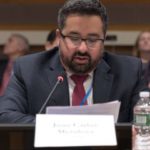 H.E. Juan Carlos Mendoza, Ambassador to the UN, on behalf of H.E. Luis Guillermo Solís, President of Costa Rica
H.E. Juan Carlos Mendoza, Ambassador to the UN, on behalf of H.E. Luis Guillermo Solís, President of Costa Rica
“Last October, we launched an official national multidimensional poverty index, or ‘MPI’. Our MPI is reported alongside our monetary poverty metric and makes visible the many men, women, and children who experience direct deprivations in aspects of life that public policy can address. So there are two public benefits to measuring multidimensional poverty. First, people whose conditions were overlooked by a monetary poverty measure feel that now we recognize and understand their situation. Second, reducing multidimensional poverty is not unpredictable. The MPI changes as a result of concerted action of public policy, corporate social responsibility, and NGO programming.”
“Costa Rica has innovated in using the MPI for resource allocation. This year I signed a Presidential decree requiring the MPI to be used to set the budget for poverty programs. In this way the MPI is being used as a management tool, a way to streamline and improve the governance of poverty programs in the country.”
 H.E. Marie-Louise Potter, Ambassador to the UN, on behalf of H.E. Joel Morgan, Foreign Minister of Seychelles
H.E. Marie-Louise Potter, Ambassador to the UN, on behalf of H.E. Joel Morgan, Foreign Minister of Seychelles
“As [a high income country and] a Small Island Developing State, we are fully aware of our vulnerabilities and our strengths. We acknowledge that pockets of poverty exist in our society and we need to explore its many facets so that we can target interventions accordingly.”
“We are confident that designing and using a national MPI will contribute greatly to the implementation of better public policies, which will improve the lives of the most vulnerable people around the globe.”
 H.E. Shamsul Alam, Member (Senior Secretary) of the General Economics Division, Planning Commission of Banglandesh
H.E. Shamsul Alam, Member (Senior Secretary) of the General Economics Division, Planning Commission of Banglandesh
“Income poverty is not enough to see poverty… We are certainly quite pleased with the MPI method because it counts other aspects of deprivations of human beings.”
“We are committed, we are progressing… there are limitations of data and political commitment. But gradually we will switch over into an MPI method.”
 H.E. Ernesto M. Pernia, Secretary of the National Economic Development Authority of the Philippines
H.E. Ernesto M. Pernia, Secretary of the National Economic Development Authority of the Philippines
“Over the past four years, we have strongly supported the push for the inclusion of the multidimensional poverty measures as an important and essential part of the performance indicators for the post-2015 development agenda.”
“In 2014, the midterm update of the Philippine Development Plan 2011-2016 explicitly included the reduction of multidimensional poverty into the desired outcomes of our development agenda. The MPI was also included as an official indicator of poverty. This paved the way for accelerated poverty reduction initiatives… Under the new government of President Rodrigo Duterte, addressing multidimensional poverty to attain poverty- and inequality-reducing economic growth will further be integrated into the Philippines Development Plan, 2017 to 2022.”
“To monitor this and to complement the poverty incidence metric which is based on income, the Philippine Statistics Authority is currently developing an official MPI for the Philippines. This is part of the deliverables under the Philippine Statistical Development Plan 2011-2017 and is expected to be released in 2018.”
“Inclusive growth can be attained by improving human capital, access to services and facilities, and asset buildup among the poor in a multidimensional context.”
 H.E. Horacio Sevilla, Ambassador to the UN, on behalf of H.E. Gabriela Rosero, Minister of Social Development of Ecuador
H.E. Horacio Sevilla, Ambassador to the UN, on behalf of H.E. Gabriela Rosero, Minister of Social Development of Ecuador
“The measurement of poverty based solely on monetary income provides an incomplete assessment of standard of living and don’t directly capture access to public goods that are not acquired with income… We believe that this [multidimensional] index is an ideal tool for facing the challenge of poverty in all its many facets.”
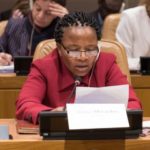 H.E. Anna Mwasha, Director of the Poverty Eradication Department of Tanzania
H.E. Anna Mwasha, Director of the Poverty Eradication Department of Tanzania
“The SDGs Goal 1 is to end poverty in all its forms everywhere. Poverty is a result of many combined things (multiple-dimensions). If we want to fairly track progress in Goal 1, key poverty related indicators in goals 2, 3, 4, 5, 6 and 7 should be well addressed in policies. Also, MPI will be needed in assessing SDG 1.”
“The Government of Tanzania recognises the importance of the MPI. This indicator among others has been included as targets in the Five Years Development Plan II (2016/17 – 2020/21). The FYDP II is a sound policy framework which has incorporated the SDGs, and informs sectors’ strategic plans. The main focus of this National Plan is industrialization and human development. The MPI is among the indicators to track progress on poverty.”
“We hope to strengthen our capacity for data collection, analysis, and dissemination by raising awareness among the public and policymakers to develop an official MPI to support evidence-based planning at all levels.”
 Dr. Ana Revenga, Senior Director of The World bank’s Poverty and Equity Global Practice
Dr. Ana Revenga, Senior Director of The World bank’s Poverty and Equity Global Practice
“The multidimensional poverty agenda is part of a broader conversation we are leading at the Bank on finding ever better ways of defining and measuring poverty. This is the mandate we entrusted to the Global Poverty Commission, led by Sir Tony Atkinson and including some of the most distinguished names in the study of poverty.”
“I do not want to anticipate the [Atkinson] Report, which is an extremely comprehensive and excellent piece, but I do want to highlight that it clearly recommends that global monetary poverty measures be accompanied by a set of Complementary Indicators, which should include a dashboard of non-monetary indicators and a multidimensional poverty indicator based on the counting approach. We are likely to see an increased involvement of the Bank in its global monitoring on multidimensional poverty measures as a complement to monetary measures, so as to allow for richer and more policy relevant discussions on poverty and deprivation.”
 Dr. Savas Alpay, Chief Economist of the Islamic Development Bank
Dr. Savas Alpay, Chief Economist of the Islamic Development Bank
“The Islamic Development Bank group and OPHI have expanded their partnership in the area of multidimensional poverty since the launch of the Sustainable Development Goals.”
“This report [by the Islamic Development Bank with OPHI support] has provided an overview of multidimensional poverty levels and trends in our member countries in sub-Saharan Africa by using the most recent estimations and analysis of the global multidimensional poverty index, and this report will be very useful for us to enhance our interventions on poverty alleviation, especially in these member countries”
“Our analysis [from a recent report on multidimensional poverty in sub-Saharan African member countries] shatters any depiction of African poverty as being uniform.”
“It is best to tackle multidimensional poverty in a coordinated way with a strategy that encompasses all these dimensions and that also unites the various ministries of government behind an integrated plan of action.”
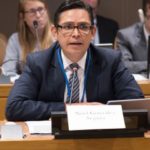 Dr. Noel Gonzalez Segura, General Director at the Mexican Agency for International Cooperation and Development (AMEXCID)
Dr. Noel Gonzalez Segura, General Director at the Mexican Agency for International Cooperation and Development (AMEXCID)
“Mexico is deeply committed to multidimensional poverty… From the point of view of our Development Agency for Cooperation and Development (AMEXID) this is one of the tools that we are promoting as a success story…to share our experience. Mexico will be hosting the fourth meeting of the Multidimensional Poverty Peer Network to take place 7-9 November this year…(Among other topics) we will review the relationship of multidimensional poverty with the metrics of the SDGs.
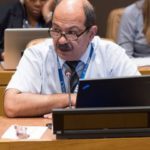 Dr. Attila Hancioglu, Acting Chief of UNICEF’s Data & Analytics Section
Dr. Attila Hancioglu, Acting Chief of UNICEF’s Data & Analytics Section
“For more than a decade now, UNICEF has been committed to capturing child poverty in all its dimensions.”
“Multidimensional poverty measures will now be systematically featuring in our global databases as part of our SDG work, as well as becoming an integral part of our reporting when it comes to the Multiple Indicator Cluster Surveys, which will support countries as a household survey program.”
 Dr. Ayodele Odusola, Chief Economist at UNDP’s Regional Bureau for Africa
Dr. Ayodele Odusola, Chief Economist at UNDP’s Regional Bureau for Africa
“The Multidimensional Poverty Peer Network (MPPN) approach is creating a formidable platform for multi-dimensional poverty measurement at the national level, using a multi-partnership approach… I encourage member states that are yet to join the MPPN to do so.”
“When an MPI is used as a policy lens for the formulation and implementation of development plans and strategy, more people benefit from development outcomes. Therefore, a commitment to an MPI is a commitment to ‘leaving no one behind by 2030’.”
 Sir Louis Straker, Deputy Prime Minister and Foreign Minister, on behalf of H.E. Ralph Gonsalves, Prime Minister of Saint Vincent and the Grenadines
Sir Louis Straker, Deputy Prime Minister and Foreign Minister, on behalf of H.E. Ralph Gonsalves, Prime Minister of Saint Vincent and the Grenadines
“My Government has a far more ambitious goal: the elimination of hunger within five years. The government of St. Vincent and the Grenadines established a parliamentary front against hunger and undernourishment in order to strengthen political commitment and action.”
“The Government of St. Vincent and the Grenadines recognizes the cyclical link between poverty, hunger, and education.”
The eminent speakers addressing a full room included:
- E. Jerry M. Matjila, Ambassador – Permanent Representative of South Africa to the UN
- E. Jeff Radebe, Minister in the Presidency for Planning, Monitoring and Evaluation, South Africa
- E. Juan Orlando Hernández, President of Honduras
- E. Ralph Gonsalves, Prime Minister of Saint Vincent and the Grenadines (through Sir Louis Straker, Deputy Prime Minister and Foreign Minister)
- E. Juan Manuel Santos, President of Colombia (through Director of the Department for Social Prosperity of Colombia, H.E. Tatyana de la Cruz)
- E. Luis Guillermo Solis, President of Costa Rica (through Ambassador to the UN, H.E. Juan Carlos Mendoza)
- E. Joel Morgan, Foreign Affairs Minister of Seychelles (through Ambassador to the UN, H.E. Marie-Louise Potter)
- E. Shamsul Alam, Member (Senior Secretary) of the General Economics Division, Planning Commission of Bangladesh
- E. Ernesto M. Pernia, Secretary of the National Economic Development Authority of the Philippines
- E. Gabriela Rosero, Minister of Social Development of Ecuador (through Ambassador to the UN, H.E. Horacio Sevilla)
- E. Anna Mwasha, Director of the Poverty Eradication Department of Tanzania
Further interventions from the floor were contributed by:
- Ana Revenga, Senior Director of the World Bank’s Poverty and Equity Global Practice
- Savas Alpay, Chief Economist of the Islamic Development Bank
- Noel Gonzalez Segura, General Director at the Mexican Agency for International Cooperation (AMEXCID)
- Attila Hancioglu, Acting Chief of UNICEF’s Data & Analytics Section
- Ayodele Odusola, Chief Economist at UNDP’s Regional Bureau for Africa
Watch the video of the event here.
Speeches from the event:
Minister Jeff Radebe of South Africa
President Juan Manuel Santos of Colombia (through Director of the Department of Social Prosperity Tatyana Orozco de la Cruz)
President Luis Guillermo Solís of Costa Rica (through Ambassador to the UN Juan Carlos Mendoza)
Secretary Ernesto M. Pernia of the Philippines
Dr. Ana Revenga of the World Bank
Dr. Ayodele Odusola of UNDP
Related documents:
Concept note
Video
Agenda
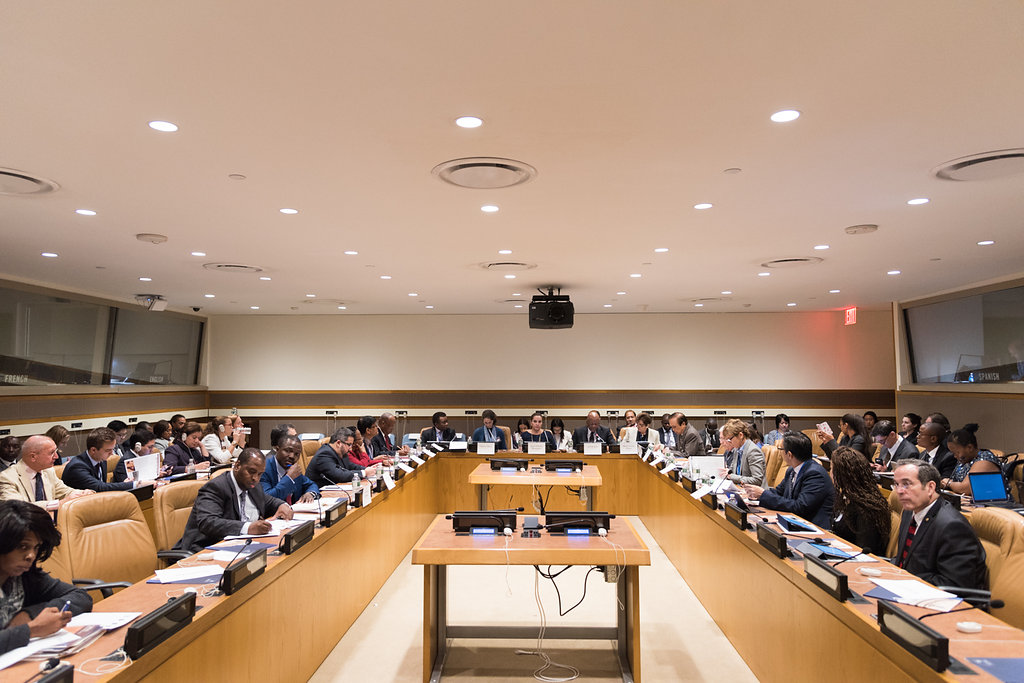






















































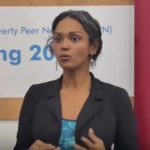

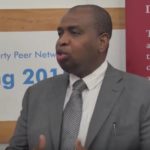


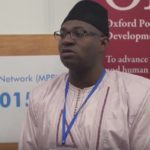



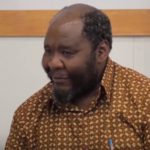

Recent Comments